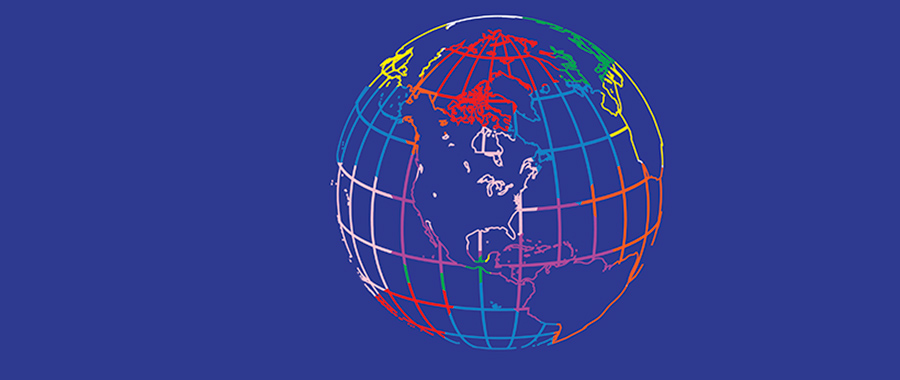The Bahá’í teachings articulate profound insights into the dual processes of integration and disintegration, presenting them as parallel phenomena that are crucial to the evolving dynamics of the modern world. These processes are not merely oppositional but are intricately intertwined, yielding a holistic understanding of societal transformation. In this exploration, we shall delve into various dimensions of integration and disintegration, emphasizing their implications for humanity’s collective future.
Understanding Integration and Disintegration
Integration can be conceptualized as the holistic amalgamation of diverse elements, fostering unity and collaboration among individuals and communities. Conversely, disintegration often symbolizes fragmentation and disarray, a state where established structures and relationships dissolve into inefficacy. In societal contexts, these processes manifest in myriad forms — cultural, political, and psychological, shaping the landscape of human interaction.
From a Bahá’í perspective, integration is seen as a divine imperative, underscoring the inherent oneness of humanity. The teachings advocate for an inclusive approach, where diversity is celebrated as a catalyst for enrichening unity. Disintegration, although often perceived negatively, serves as a precursor to renewal and transformation. It is within this cyclic interplay that opportunities for growth and reformation emerge.
The Societal Implications of Integrated Harmony
The modern world is characterized by unprecedented interconnectedness, underscoring the necessity for integration. Globalization has not only facilitated cultural exchange but has also magnified the urgency for collaborative endeavors to address pressing global issues. Through integration, communities can transcend parochial boundaries, fostering environments where empathy and mutual respect flourish.
Moreover, the Bahá’í teachings posit that integrated approaches to social issues engender tangible advancements. For instance, education systems that embrace diverse methodologies cultivate critical thinking and creativity, equipping future generations to tackle complex challenges. This is a testament to the power of collaborative learning, which not only enhances individual capabilities but also fortifies societal resilience.
Disintegration as a Catalyst for Change
The disintegration process, although often regarded with trepidation, embodies an essential function in the grand tapestry of progress. Historical scrutiny reveals that many pivotal transformations emerged from periods of disarray, where outdated norms and ideologies faltered, paving the path for innovative paradigms. This can be observed in the evolution of civil rights movements and the emergence of new governance structures, which are often born from the ashes of failed systems.
Disintegration prompts critical introspection and re-evaluation of established norms, challenging individuals and societies to reconsider their fundamental principles. As existing frameworks dissolve, they unearth latent potential for creativity, allowing the birth of novel ideas and solutions. The Bahá’í teachings encourage this process, asserting that constructive disintegration necessitates conscious engagement and reflective dialogue among diverse stakeholders.
The Interplay of Integration and Disintegration in Individual Development
On an individual level, the parallel processes of integration and disintegration manifest internally through personal growth and transformation. Embracing new experiences and relationships fosters integration, enabling the synthesis of knowledge, skills, and emotional intelligence. However, personal disintegration — the dismantling of limiting beliefs and outdated identities — is equally vital for authentic self-discovery and empowerment.
This inner journey is reflective of a broader societal transition, suggesting that the health of communities is contingent upon the psychological and spiritual well-being of their members. By cultivating an environment encouraging both integration and healthy disintegration, individuals can navigate life’s vicissitudes with resilience and grace. Herein lies the promise of the Bahá’í teachings: nurturing a collective consciousness that values growth through interconnectedness and transformation.
Creating a Harmonious Future
To create a harmonious future, adhering to the principles of integration and understanding the inevitability of disintegration are essential. This involves fostering inclusive dialogues that bridge cultural and ideological divides, allowing for a comprehensive understanding of diverse perspectives. The Bahá’í model encourages proactive engagement with conflict, viewing it not as an endpoint but as a catalyst for constructive change.
Moreover, a commitment to service and altruism is paramount. Encouraging individuals to contribute positively to their communities synthesizes personal aspirations with collective welfare. The Bahá’í teachings call for active participation in societal progress, highlighting that genuine integration requires the diligent effort of each individual towards ensuring social equity and justice.
In this vein, the role of education cannot be overstated. Educational systems grounded in Bahá’í principles should transcend conventional curricula, emphasizing the development of ethical and moral capacities alongside intellectual growth. This integration of knowledge and values is essential for nurturing a generation equipped to navigate the complexities of disintegrating norms in a constructive manner.
Conclusion
In summary, the Bahá’í teachings illuminate the parallel processes of integration and disintegration as integral to the evolution of individual and collective consciousness. By embracing the interplay of these phenomena with optimism and proactivity, humanity can navigate the transitional paradigms of the modern world. The promises of integration lie in enhanced cooperation, empathy, and shared purpose, while the challenges of disintegration beckon for renewal, introspection, and transformative action. As we stride into an era characterized by rapid change, the wisdom embedded in these teachings offers an invaluable blueprint for fostering a unified, harmonious, and resilient global community.
